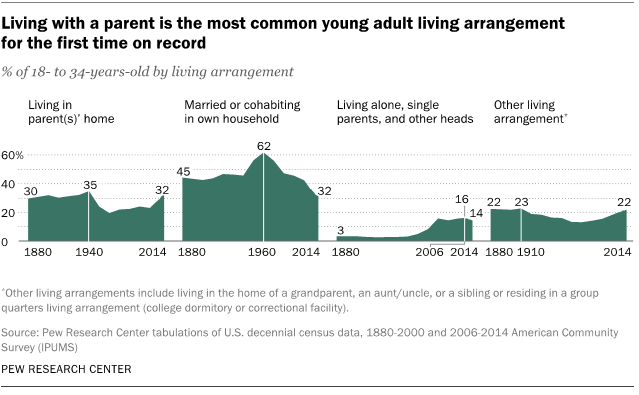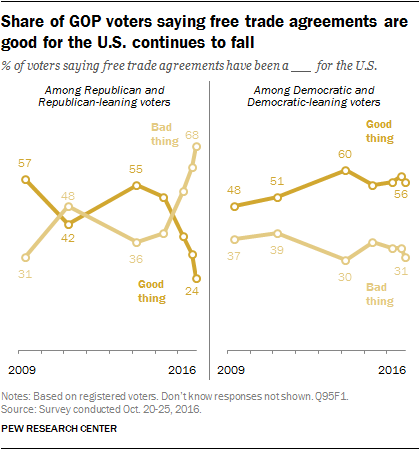Written by Econintersect
 Every day Econintersect publishes a feature available only to our newsletter subscribers. It is accessible seemlessly through the newsletter, but today technical difficulties caused the article to be excluded from the newsletter. We are making a public posting available so that newsletter subscribers will be able to easily access without having to go through a password controlled process. This is a bonus for all other readers. If you want this feature every day, join more than 6,000 readers who subscribe to our FREE daily newsletter.
Every day Econintersect publishes a feature available only to our newsletter subscribers. It is accessible seemlessly through the newsletter, but today technical difficulties caused the article to be excluded from the newsletter. We are making a public posting available so that newsletter subscribers will be able to easily access without having to go through a password controlled process. This is a bonus for all other readers. If you want this feature every day, join more than 6,000 readers who subscribe to our FREE daily newsletter.
Econintersect: Every day our editors collect the most interesting things they find from around the internet and present a summary “reading list” which will include very brief summaries (and sometimes longer ones) of why each item has gotten our attention. Suggestions from readers for “reading list” items are gratefully reviewed, although sometimes space limits the number included.
This feature is published every day late afternoon New York time. For early morning review of headlines see “The Early Bird” published every day in the early am at GEI News (membership not required for access to “The Early Bird”.).
BECOME A GEI MEMBER – IT’s FREE!
Every day most of this column (“What We Read Today”) is available only to GEI members.
To become a GEI Member simply subscribe to our FREE daily newsletter.
The rest of this post is available only the GEI Members. Membership is FREE – click here
Topics today include:
House and Senate Headed for a Clash on Medicare
Trump Sees Technology Risks for White House
Five Transportation Issues to Watch under Trump
Manhunt Underway in Istanbul
Russian Diplomats Leave U.S.
Intra-Elite Competition – When It’s Good and When It’s Bad
The Strange Disappearance of Cooperation in America
Striking Findings from Pew Research in 2016
And More
Articles about events, conflicts and disease around the world
U.S.
House, Senate headed for clash on Medicare (The Hill) Senate and House Republicans are headed for a clash over whether to tackle Medicare reform under President-elect Donald Trump. Senate Republican leaders prefer to focus narrowly on an ObamaCare replacement bill that does not contain changes to Medicare – a cautious approach that reflects their slim majority. But House Republicans, firmly in control of the lower chamber, want to aim higher. They say unified Republican control of government is a chance to finally enact the entitlement reforms that they’ve been talking about for years. The wild card in the debate is Trump. Rep. Pete Roskam (R-Ill.), a member of the Ways and Means Committee, which has jurisdiction over healthcare, said voters have endorsed the Republican argument that Medicare needs to be reformed. Roskam said.:
“The changes in Medicare that we have proposed have been litigated and the country has said, we’ll entrust you with very big majorities. Republicans keep talking about these things and keep winning. The question isn’t whether to do them, it’s when to do them.”
Obama boosted White House technology; Trump sees risks (U.S. News & World Report) As Barack Obama began preparing to leave office, the first smartphone-toting U.S. president ordered his team to upgrade the White House’s aging technology for his successor. New computers were purchased and faster internet was installed. Not included in the modernization plans? A courier service. But that delivery method of a bygone era may be in for a comeback under Donald Trump. Despite his voracious use of Twitter, the president-elect appears to be leaning toward old tech to ensure the security of sensitive messages.
Five transportation issues to watch under Trump (The Hill) The list:
FAA reauthorization
Trump’s $1 trillion infrastructure plan
DC Metro funding
Cuba flights
Driverless car regulations
Turkey
Manhunt after Istanbul club attack (BBC News) Police in Istanbul are hunting for a gunman who opened fire at a well-known nightclub, killing at least 39 people. The attack happened at Reina nightclub early on Sunday, as hundreds of revellers marked the new year. Officials say some 15 foreigners were killed, including citizens from Israel, France, Tunisia, Lebanon, India, Belgium, Jordan and Saudi Arabia.
Russia
Russian diplomats expelled by Obama over hacking leave US (BBC News) Thirty-five Russian diplomats expelled from the United States by President Barack Obama have left the country, Russian news agencies report. An embassy official said the plane had taken off with all the affected personnel and their families aboard. Mr Obama ordered the expulsion in response to alleged hacking of the US Democratic Party and Clinton campaign during the 2016 presidential election. President-elect Trump has promised a revelation about the allegations.
Other Scientific, Health, Political, Economics, and Business Items of Note – plus Miscellanea
Intra-Elite Competition: A Key Concept for Understanding the Dynamics of Complex Societies (clyodynamica) An excellent esay by Peter Turchin, professor in the Department of Ecology and Evolutionary Biology at the University of Connecticut; Research Associate in the School of Anthropology, University of Oxford; and Vice-President of the Evolution Institute. Here are some excerpts:
Intra-elite competition is one of the most important factors explaining massive waves of social and political instability, which periodically afflict complex, state-level societies. This idea was proposed by Jack Goldstone nearly 30 years ago. Goldstone tested it empirically by analyzing the structural precursors of the English Civil War, the French Revolution, and seventeenth century’s crises in Turkey and China.
Moderate intra-elite competition need not be harmful to an orderly and efficient functioning of the society; in fact, it’s usually beneficial because it results in better-qualified candidates being selected. Additionally, competition can help weed out incompetent or corrupt office-holders. However, it is important to keep in mind that the social effects of elite competition depend critically on the norms and institutions that regulate it and channel it into such societally productive forms.
Intense intra-elite competition, however, leads to the rise of rival power networks, which increasingly subvert the rules of political engagement to get ahead of the opposition. Instead of competing on their own merits, or the merits of their political platforms, candidates increasingly rely on “dirty tricks” such as character assassination (and, in historical cases, literal assassination). As a result, excessive competition results in the unraveling of prosocial, cooperative norms (this is a general phenomenon that is not limited to political life).
Elite overproduction in the US has already driven up the intensity of intra-elite competition. A reasonable proxy for escalating political competition here is the total cost of election for congressional races, which has grown (in inflation-adjusted dollars) from $2.4 billion in 1998 to $4.3 billion in 2016 (Center for Responsive Politics). Another clear sign is the unraveling of social norms regulating political discourse and process that has become glaringly obvious during the 2016 presidential election.
Analysis of past societies indicates that, if intra-elite competition is allowed to escalate, it will increasingly take more violent forms. A typical outcome of this process is a massive outbreak of political violence, often ending in a state collapse, a revolution, or a civil war (or all of the above).
The Strange Disappearance of Cooperation in America (clyodynamica) Another great essay by Peter Turchin (see brief bio info with preceding article). Two graphics below illustrate this discussion well. The first shows the cycles of polarization from the founding of the U.S. (1820s – ‘Era of Good Feelings and the 1950s had exceptionally low political polarization; the era peaking around 1900 and the current time have extremely high polarization. The second graphic shows the cycles of ‘Well-Being’ and ‘Inequality’ over 2 centuries. He writes:
…from its inception the American society was characterized, to an unusual degree, by the density of associational ties and an abundance of social capital. Almost 200 years ago that discerning observer of social life, Alexis de Tocqueville, wrote about the exceptional ability of Americans to form voluntary associations and, more generally, to cooperate in solving problems that required concerted collective action. This capacity for cooperation apparently lasted into the post-World War II era, but several indicators suggest that during the last 3-4 decades it has been unraveling.


16 striking findings from 2016 (Pew Research Center) Here are 3 of the 16:
1. The American middle class is shrinking in most metropolitan areas.
4. Young people today are more likely to be living with their parents than with a spouse or partner.
7. Republicans have grown increasingly skeptical of free trade.











